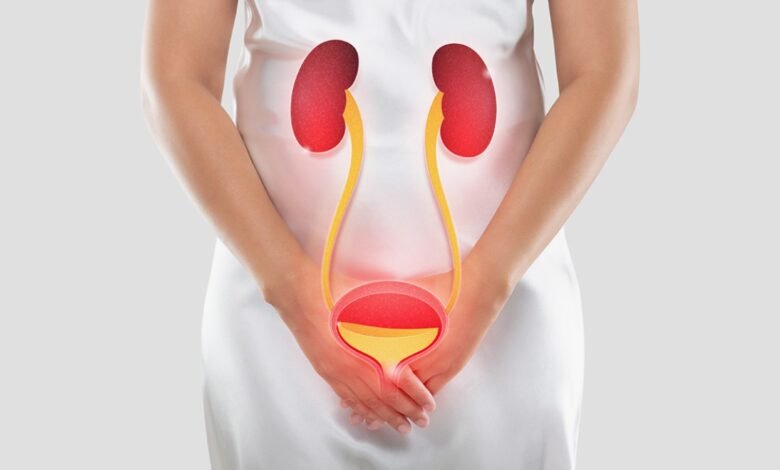
Stress is an inevitable part of life, but its impact on your body can be wide-ranging and, in some cases, unexpected. One area where stress can have a particularly profound effect is on your bladder and overall urinary health. Many people may not be aware of the connection between emotional stress and urinary problems, but research shows that anxiety and other mental health issues can significantly affect the functioning of your urinary system.
At Urology Partners of North Texas, the importance of maintaining a healthy bladder and urinary tract is well-recognized, and understanding the effects of stress is a key component of addressing urological health concerns.
The Link Between Stress and Bladder Health
When your body is under stress, it activates the “fight or flight” response, which prepares you to face a threat or escape from danger. During this process, various physiological changes occur, including an increase in heart rate, blood pressure, and the release of stress hormones such as cortisol. These changes are essential for survival in the short term, but chronic stress can lead to long-lasting effects on your health, including your bladder and urinary system. Visit: toastul.com
Stress affects your bladder in several ways:
- Overactive Bladder (OAB): Stress and anxiety can lead to the development or worsening of overactive bladder (OAB) symptoms. OAB is a condition characterized by a frequent and urgent need to urinate, often accompanied by incontinence. When you’re stressed, your body releases hormones that can overstimulate the bladder, causing it to contract more often than necessary.
- Urinary Incontinence: Stress can exacerbate urinary incontinence, particularly stress incontinence, which occurs when there is pressure on the bladder, such as during sneezing, coughing, or laughing. The pelvic floor muscles, which help control the bladder, can weaken due to stress, making it more difficult to hold urine.
- Urinary Retention: On the other hand, stress can also contribute to urinary retention, a condition where you have difficulty emptying your bladder completely. When you’re anxious or stressed, the muscles that control the bladder may become tense, preventing the bladder from fully relaxing and emptying.
- Interstitial Cystitis: Stress is also known to trigger or worsen the symptoms of interstitial cystitis (IC), a chronic bladder condition that causes pain, pressure, and discomfort in the bladder and pelvic region. People with IC often report that their symptoms flare up during periods of high stress.
- Increased Risk of Urinary Tract Infections (UTIs): Chronic stress weakens the immune system, making it more difficult for your body to fight off infections, including urinary tract infections (UTIs). Stress can also cause changes in your bladder function that increase the likelihood of bacteria entering the urinary tract, leading to more frequent UTIs.
How Stress Impacts Your Pelvic Floor Muscles
The pelvic floor muscles play a crucial role in supporting the bladder and controlling urination. Stress and anxiety can lead to the tightening of these muscles, which can cause pain, discomfort, and urinary problems. Over time, chronic tension in the pelvic floor can contribute to conditions such as pelvic floor dysfunction, which affects bladder control and can lead to both incontinence and retention issues.
Additionally, stress-related tension in the pelvic floor muscles can exacerbate bladder pain and discomfort, making it difficult for individuals to relax and feel relief from their symptoms.
Coping with Stress to Improve Urinary Health
Managing stress effectively can significantly improve bladder and urinary health. If you’re experiencing urinary problems that you suspect are related to stress, it’s important to address the underlying stressors in your life and adopt strategies to reduce their impact.
Some helpful techniques for managing stress include:
- Exercise: Physical activity is one of the best ways to relieve stress and improve your overall health. Regular exercise helps to release endorphins, which can reduce stress and improve your mood. It can also help to strengthen the pelvic floor muscles, which can improve bladder control.
- Mindfulness and Relaxation Techniques: Practices such as meditation, deep breathing, and progressive muscle relaxation can help reduce stress and promote relaxation of the pelvic floor muscles. These techniques can be especially beneficial for individuals experiencing bladder pain or discomfort.
- Cognitive Behavioral Therapy (CBT): CBT is a type of therapy that focuses on identifying and changing negative thought patterns that contribute to stress and anxiety. It can be a helpful tool for managing stress-related bladder symptoms by addressing the psychological aspects of stress.
- Support Networks: Sometimes, talking to a trusted friend or family member can help alleviate stress. In more severe cases, seeking professional support from a therapist or counselor may be beneficial.
- Medical Treatment: If stress-related bladder problems persist, it’s important to consult a urology specialist. Medical treatments, such as medications or bladder training exercises, may be necessary to manage symptoms effectively.
At Urology Partners of North Texas, expert care is provided for individuals experiencing stress-related urinary issues. Their team of specialists understands the complex relationship between stress and bladder health and offers personalized treatment options to help patients regain control of their urinary health.
To learn more about how stress affects your bladder and how to manage urinary health effectively, visit upnt.com.



